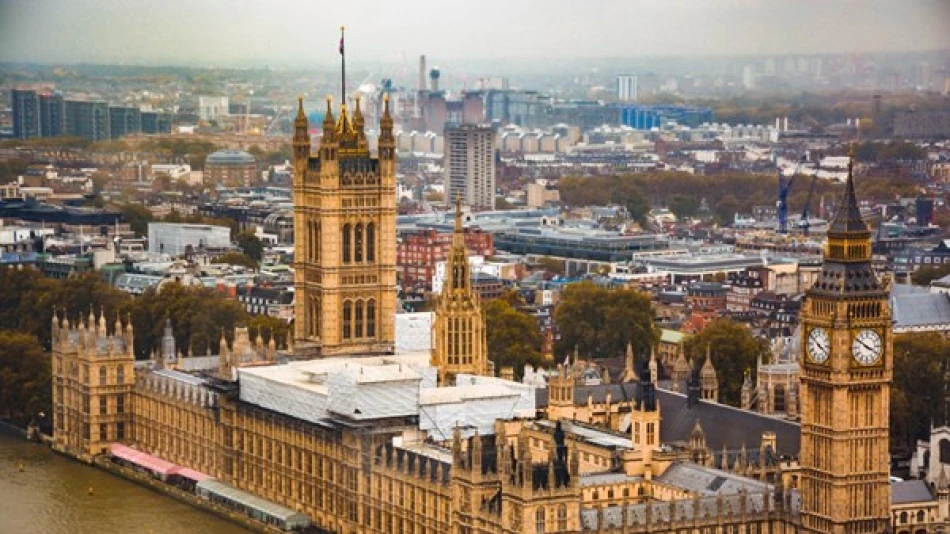
British MPs Urge Starmer to Recognize Palestinian Statehood
Britain Faces Mounting Pressure to Recognize Palestinian State as France Leads European Shift
Over 220 British MPs from across the political spectrum are demanding the UK government officially recognize a Palestinian state, intensifying pressure on Prime Minister Keir Starmer just days after France announced it would take this historic step at the UN General Assembly in September. The cross-party push signals a potential seismic shift in European diplomatic positions on the Israeli-Palestinian conflict.
Cross-Party Coalition Challenges Government Policy
The letter, signed by representatives from nine political parties including dozens from Starmer's ruling Labour Party, calls for immediate recognition at next week's UN conference in New York. The July 28-29 summit, co-hosted by France and Saudi Arabia, presents what MPs see as a critical diplomatic opportunity.
"While we recognize that the United Kingdom cannot single-handedly achieve a free and independent Palestine, UK recognition would have significant impact," the parliamentarians wrote, invoking Britain's historical ties to the region and its permanent UN Security Council seat.
Historical Responsibility Drives Political Momentum
The MPs pointedly referenced Britain's role in establishing Israel through the 1917 Balfour Declaration, arguing that London bears "historical responsibility toward the Palestinian people." This framing transforms recognition from a diplomatic gesture into a moral imperative—a powerful argument that resonates across party lines.
The signatories span from center-right Conservatives to centrist Liberal Democrats, plus regional parties from Scotland and Wales, demonstrating how the Gaza conflict has reshuffled traditional political alignments on Middle Eastern policy.
France Sets New European Precedent
French President Emmanuel Macron's announcement marks a watershed moment in European diplomacy. France would become the first G7 nation and most powerful European state to recognize Palestinian statehood—a move that could trigger a domino effect across the continent.
During his official UK visit this month, Macron publicly urged London to coordinate with Paris on Palestinian recognition, suggesting a broader European strategy is emerging. This represents a calculated shift away from the traditional approach of leaving recognition until after a negotiated settlement.
Comparing Global Recognition Patterns
Currently, 139 of 193 UN member states recognize Palestine, including most of Latin America, Africa, and Asia. However, major Western powers have largely held back, viewing recognition as premature without a comprehensive peace deal. Spain, Ireland, and Norway broke ranks in May by recognizing Palestinian statehood, but France's move carries far greater geopolitical weight.
Starmer Caught Between Domestic and International Pressures
The Labour leader faces a delicate balancing act. Domestically, growing opposition to the Gaza war and fears of mass starvation in the territory have shifted public opinion. Internationally, Britain risks diplomatic isolation if European allies move forward without London.
Earlier in July, approximately 60 Labour MPs had already written privately to Foreign Secretary David Lammy urging Palestinian recognition. The expanded cross-party letter suggests this pressure is intensifying rather than subsiding.
Strategic Implications for UK Foreign Policy
For Britain, Palestinian recognition would represent a fundamental recalibration of Middle Eastern policy. It could strengthen ties with Arab nations while potentially complicating the UK's relationship with Israel and the United States, where such recognition remains politically toxic.
However, the MPs argue that Britain's UN Security Council membership gives London unique influence to shape the recognition process constructively. Rather than following others' lead, the UK could help establish frameworks for meaningful statehood.
Market and Regional Impact
European recognition of Palestinian statehood could accelerate regional diplomatic initiatives, potentially affecting energy markets and investment flows. Gulf states, which have increasingly normalized relations with Israel, may find new leverage in balancing their regional partnerships.
The timing also matters economically. As Europe seeks to diversify energy supplies and strengthen ties with Arab nations post-Ukraine war, Palestinian recognition offers a relatively low-cost way to demonstrate solidarity with Arab positions.
Whether Starmer yields to this unprecedented parliamentary pressure will signal how far European powers are willing to challenge the existing diplomatic order on one of the world's most intractable conflicts.
Most Viewed News

 Layla Al Mansoori
Layla Al Mansoori






